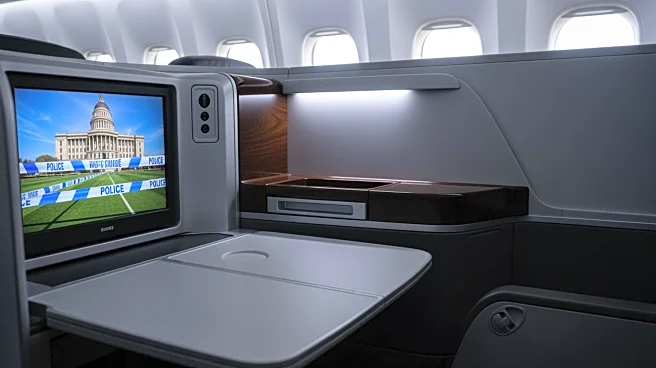What's Happening?
Air India has faced operational challenges, notably on a flight from Delhi to Toronto, where business class passengers were asked to sign a waiver acknowledging broken tray tables. This incident occurred
on September 12, 2025, during a 19-hour flight with a refueling stop in Vienna. The waiver required passengers to confirm their awareness of the issue and to state they had no objections to the seat assignment despite the inconvenience. This situation highlights ongoing maintenance issues within Air India's fleet, particularly with its Boeing 777 aircraft, which have been reported to have consistent problems with cabin conditions.
Why It's Important?
The incident underscores the challenges Air India faces in maintaining its fleet, which could impact its reputation and customer satisfaction. As the airline attempts to revamp its services under new management, such operational issues could hinder its efforts to compete in the international market. Passengers paying premium fares for business class expect a certain level of comfort and service, and failing to meet these expectations could lead to a loss of customer trust and loyalty. This situation also raises questions about the airline's maintenance priorities and resource allocation.
What's Next?
Air India may need to address these maintenance issues more aggressively to prevent further damage to its reputation. The airline's management might consider prioritizing cabin refurbishments and ensuring that basic amenities are functional to avoid similar incidents. Additionally, customer feedback and reactions could prompt Air India to revise its communication strategies and waiver policies to better handle such situations in the future.
Beyond the Headlines
This incident could have broader implications for the airline industry, highlighting the importance of maintaining older aircraft to meet customer expectations. It also raises ethical questions about the fairness of asking passengers to waive their rights to object to substandard conditions, especially in premium classes. The situation may prompt regulatory bodies to scrutinize airline maintenance practices more closely.









